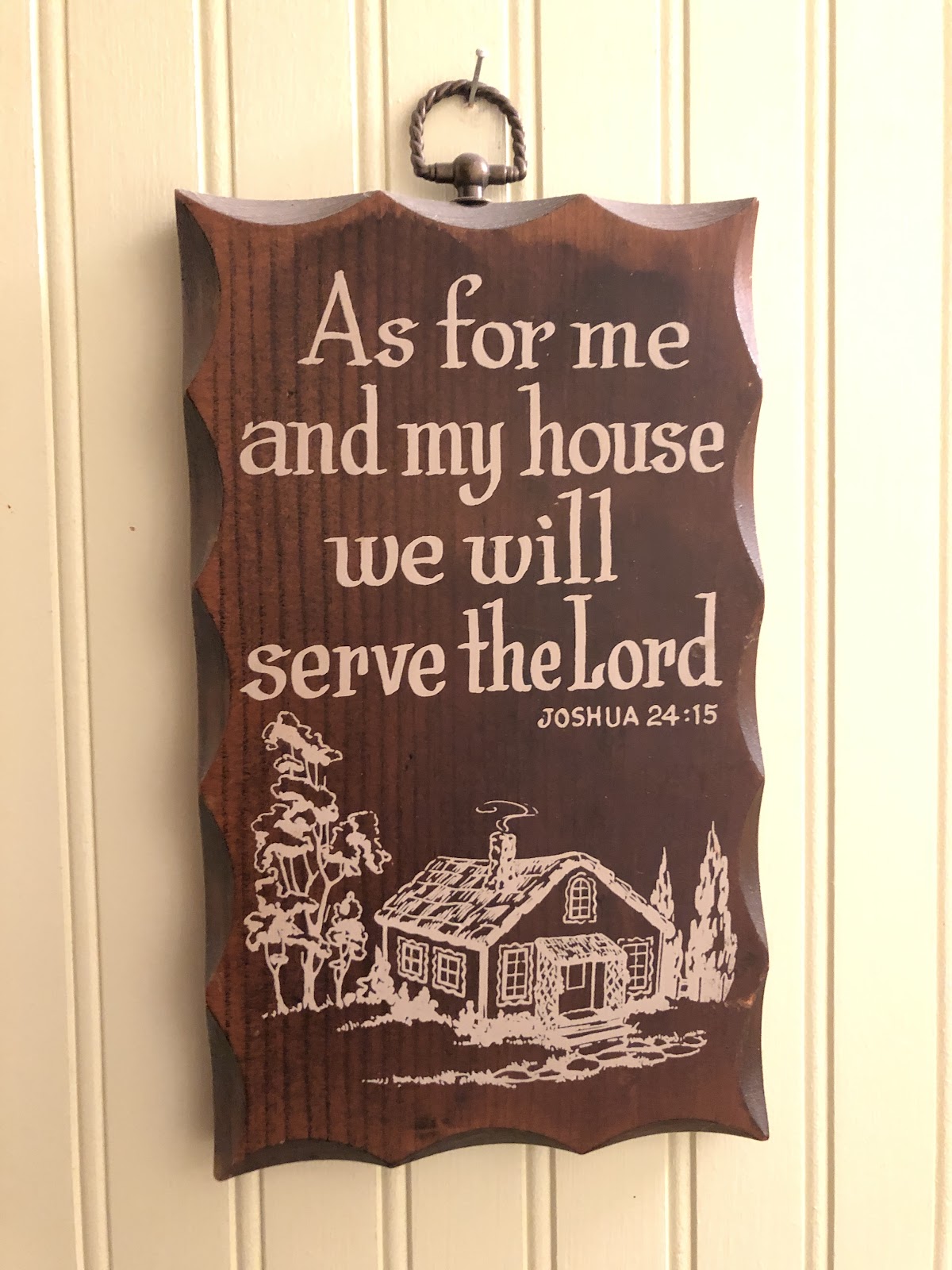Fatherhood has been both the greatest challenge and greatest joy in my life. I have desires I never experienced before being a dad. I want to provide for, nurture, and protect my three daughters. At the same time, I also have a deep desire that they would follow and serve Jesus alone.
I think Joshua of the Old Testament knew a thing or two about fatherhood. He was mentored by Moses, the man who led the people out of Egypt and brought the Lord’s teaching to them. We can imagine that Moses and Joshua had a relationship much like a father and son.
It was Moses who taught the elders of Israel to make the Lord the center of their homes. In Deuteronomy, we see God’s design is that the household is the primary place where worship and discipleship take place:
Hear, O Israel: The LORD our God, the LORD is one. Love the LORD your God with all your heart and with all your soul and with all your strength. These commandments that I give you today are to be on your hearts. Impress them on your children. Talk about them when you sit at home and when you walk along the road, when you lie down and when you get up. Tie them as symbols on your hands and bind them on your foreheads. Write them on the doorframes of your houses and on your gates. (Deuteronomy 6:4–9)
So it’s not a surprise that at the end of his time as Israel’s leader, Joshua gives a similar message to Israel about following the LORD alone. He does so in his farewell message after the people have entered and occupied the land that God promised to Abraham and Moses.
Now fear the LORD and serve him with all faithfulness. Throw away the gods your ancestors worshiped beyond the Euphrates River and in Egypt, and serve the LORD (Joshua 24:14).
In the next part of Joshua’s speech, he recognizes that his influence on the families of Israel is only limited. Joshua understands that they may not want to serve the LORD and that they can choose:
But if serving the LORD seems undesirable to you, then choose for yourselves this day whom you will serve…(Joshua 24:15a)
Do you sense the sarcasm in Joshua’s words? If his hearers do not want to obey the LORD, they can choose someone or something else to serve! It’s a lot like saying, “If you want to destroy yourselves, be my guest!” He even names some of the choices they have if they want to turn against the LORD:
…whether the gods your ancestors served beyond the Euphrates, or the gods of the Amorites, in whose land you are living (Joshua 24:15b).
This part of Joshua’s speech can especially resonate with those of us whose family histories have immigration. After all, there are values that immigrants often place as a supreme priority: perhaps education, worldly success, or preserving the culture. But if we put these ahead of serving God, these values become idols.
There are also values that Americans often place as a supreme priority: perhaps status, our desires, individual rights, or self-love. If we put these ahead of serving God, these values become idols. For American descendants of immigrants, immigrant values are the false gods of the ancestors, and American values are the false gods in the new land.
After sarcastically giving his hearers their choice of false gods, Joshua declares something that we sometimes see put on mugs and T-shirts. It’s a saying that my family has posted on a plaque in our house. It is a challenge and encouragement to people everywhere, especially to fathers:
…But as for me and my household, we will serve the LORD (Joshua 24:15c).

Joshua declares with confidence that his choice is to serve the LORD, the true God. He cannot control what others do, but he has put his stake in the ground. He has drawn a line in the sand: he will serve the LORD.
However, he doesn’t stop with himself. He declares that he will be joined by his household. His declaration includes everyone in his home: They will serve the LORD. While Joshua’s influence on the rest of Israel is limited, he knows he has the opportunity and responsibility to lead his own household. Like his mentor Moses, Joshua recognizes that the primary place of discipleship is in the home. Joshua takes responsibility and makes a public commitment to have his household serve the LORD.
Joshua’s challenge to Israel is a challenge to fathers. If you’re a father, have you made a similar commitment with your household? Have you put a stake in the ground that you will not run after the false gods of your ancestors? Have you drawn a line in the sand that you will not run after the false gods of American values? Will you lead those in your family to serve the true God?
Do you have fathers and father figures in your life? Think about how you can encourage them to take responsibility and serve their households. Consider how you can support them in their role of influencing those in their homes. Will their households be serving the LORD?
If you hope to be a father someday, is this a commitment you’ve made for yourself? When temptation comes, can you look back like Joshua on a decision to put God first? Are you preparing yourself to have your own household that serves the LORD?
For me, having my household serve the LORD means our lifestyle is transformed. We read the Bible every day together as a family. We pray together for God’s blessings, our families, the unsaved, and for the Lord to use us to serve his church. We have been volunteering in ministry together, most recently helping out at a women’s and children’s shelter. We involve our children in our generosity, having them write to our sponsored children in Ecuador, praying for our contributions to the church and missions, and showing hospitality to others. We are asking the Lord to build our girls into disciples who deny themselves and boldly serve him. For us, this is discipleship in the home. We still have a long way to go, and I am seeking wisdom from our Heavenly Father.
Part of the Joshua-like commitment for my household to serve the LORD is breaking the cycles of sin in my family history. For example, because of the Chinese Exclusion Act and immigration patterns, for generations, only the men in my family were in America, supporting their wives and children from overseas. In other words, I come from a long line of absent fathers. While I still fail sometimes by disengaging with my family, I have the opportunity to influence my wife and children directly at home. I am breaking the cycle of absentee fathers by engaging with them and leading with conviction. What generational sins might you need to break in your household?
God is calling those who influence their homes to lead with conviction and courage. The Heavenly Father, from whom every family derives its name (Ephesians 3:14), deserves all loyalty and worship. Dads, will you join me in choosing for yourselves? Will you make the commitment that you and your household will serve the LORD?
*********
Practical Application
Movie Recommendation: Show Me the Father (2021), Affirm Films
I highly recommend this documentary film, the latest project from the Kendrick brothers (creators of Courageous, Fireproof, and Facing the Giants). This film discusses how the Bible describes God as a good Father and features testimonies from those who have experienced fathers and father figures, absentee fathers, abusive fathers, and adoptive fathers.
Football fans would especially enjoy the film’s testimonies from former NFL players. Highlights include Stephen Kendrick’s journey of adopting his daughter from China, as well as stories from former Seahawks running back Sherman Smith and the men he mentored. I highly recommend this film for the whole family, especially the fathers in your life.

